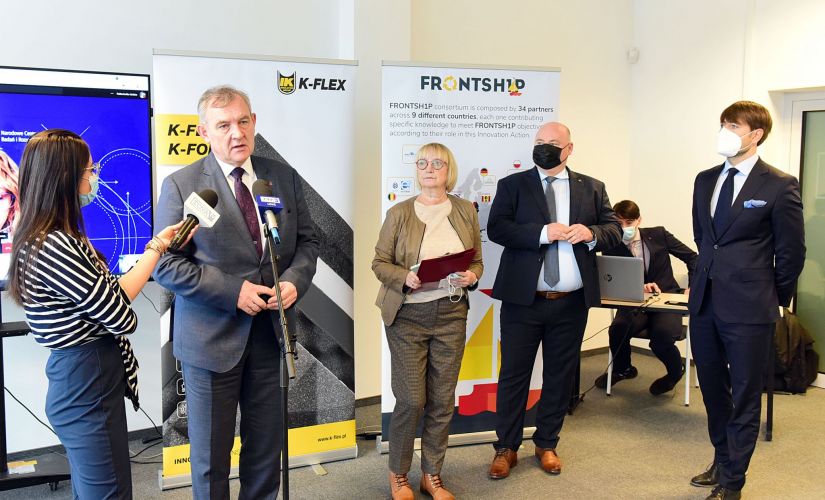Institutions from Poland and Italy, Greece, Portugal, Spain, the Netherlands, Belgium, Germany, Switzerland will work on "green" technologies for a circular economy.
- FRONTSH1P is "the most Polish European project", because as many as 11 participants are Polish institutions, whose expenses will amount to EUR 7.5 million of the total budget. I am glad that the Lodz region will be the area of first implementation of good solutions and technologies which will later go worldwide - says Professor Krzysztof Jóźwik, Rector of Lodz University of Technology. - Our university will conduct research and development work related to plastic and rubber waste. We will focus on the development of technology allowing us to reuse carbon dioxide produced by the project leader, K-Flex.
The Italian company K-Flex has 14 production facilities around the world. K-FLEX Poland specialises in the production of thermal and acoustic insulation from foamed rubber and polyethylene.
Bartłomiej Gröbner, Managing Director of the Polish branch of K-Flex emphasizes
- We want to use every piece of waste from production to be reused in our processes.
Dr. Magdalena Głogowska, a representative of the NCRD National Contact Point, informed that the FRONSH1P project is one of the four projects that received co-financing from the Horizon 2020 programme - the European Green Deal competition.
- Within the framework of this project, a Territorial Cluster of Closed-cycle Initiatives will be created, in which key partners join forces - science, business, local authorities and regional authorities – she said.
Over a period of 4 years, new solutions will be developed that will contribute to decarbonising production and consumption systems, improving quality of life, increasing interaction between urban and rural regions and, ultimately, economic growth. The proposed model will be implemented and demonstrated in the Łódź Voivodeship.
The circular economy is a system solution in which closed loops are created, thus minimising the consumption of raw materials and waste production. The project will create four such loops. Each loop will cover a different type of waste: first - wooden packaging, second - food, agricultural and municipal organic waste, third – wastewater, fourth - plastic and rubber waste. It is expected that as a result of the project carbon dioxide emissions in the Lodz region may decrease by 2% - 3%.

